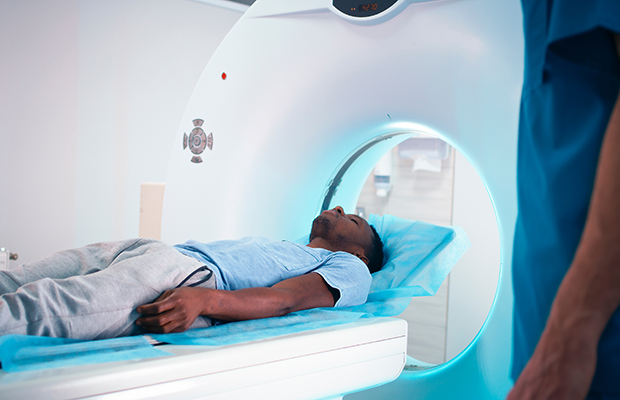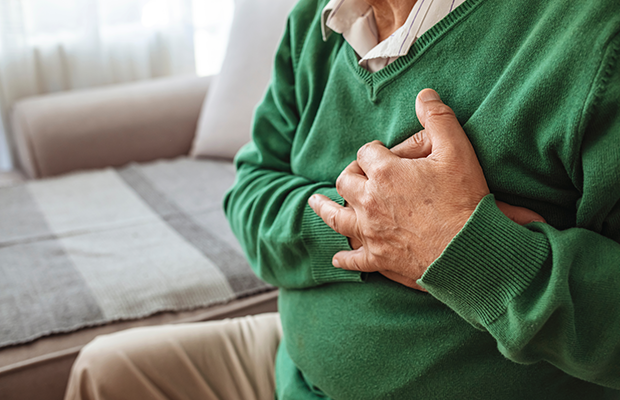
Latest research: are CT scans the best test for chest pain?
Discover the latest research we’re funding, from the best way to investigate chest pain, to new ways of preventing heart damage after a heart attack.


What's on this page?
- Should chest pain always be investigated with a CT scan?
- Why does the risk of heart attack and stroke rise as we age?
- Understanding the link between infections and dementia
- Limiting the damage from heart attack
Should chest pain always be investigated with a CT scan?
£157,274 to Dr Peter Swoboda at the University of Leeds

Each year in the UK an estimated 200,000 people are investigated for angina-related chest pain. There are many different tests for angina, including ECGs, blood tests and scans, but currently national guidelines recommend a CT (computerised tomography) scan to look for blockages in the heart’s arteries as the first choice. Dr Peter Swoboda wants to know whether chest pain should always be investigated with a CT scan. He will study 1,300 people who are part of a clinical trial to see whether a personalised approach, using other available tests, rather than a one-size-fits-all approach, leads to better physical and mental wellbeing for those living with chest pain.
Why does the risk of heart attack and stroke rise as we age?
£1,053,881 to Professor Catherine Shanahan and team at King’s College London

Our risk of having a heart attack or stroke increases as we age. So does our risk of developing high blood pressure. This is partly due to the hardening of the arteries, which is caused when mineral deposits build up inside them: this is called calcification. There is currently no treatment to stop or reverse this. Professor Catherine Shanahan and her team have discovered that as we age a protein called prelamin A builds up in the cells that line our blood vessels, and that this speeds up calcification. The researchers will look in more detail at how this happens, before testing drugs that might slow down the process. This could pave the way for new treatments to lower the risk of heart attacks and strokes.
Understanding the link between infections and dementia
£80,694 to Dr Dylan Williams at University College London
- Find out more about our research into vascular dementia
Limiting the damage from heart attack
£219,198 to Professor Sean Davidson at University College London

Heart attacks happen when an artery supplying blood to the heart muscle becomes blocked, starving it of its blood supply. But when the heart attack is treated and blood flow is restored, a significant number of people experience irreversible damage. This is because too much calcium has built up in the oxygen-starved heart muscle cells, and when the blood flow is restored, this imbalance causes the muscle to contract excessively, fatally damaging some cells. This can lead to heart failure. Professor Sean Davidson will test a drug called mavacamten (which is already being trialled to treat hypertrophic cardiomyopathy) to see if this reduces excessive contraction of the heart muscle in rats. If successful, this research could lead to the first effective treatment to prevent this kind of damage following a heart attack.
What to read next...




